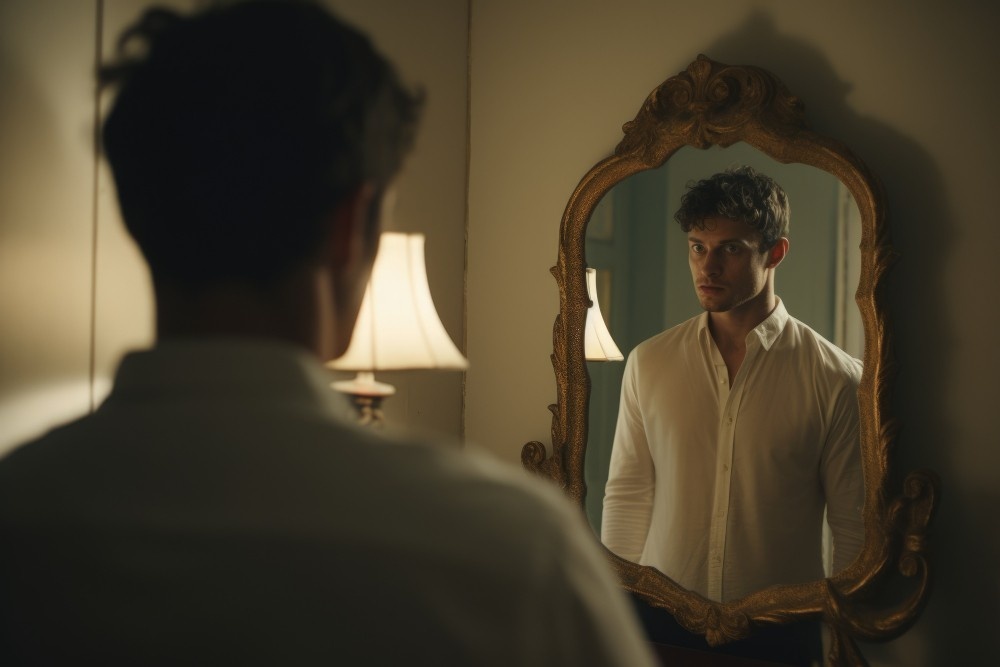
“Very little is needed to make a happy life; it is all within yourself in your way of thinking.”
Marcus Aurelius
During the height of his reign, Marcus Aurelius was having what you and I would call a really crappy day. His empire was falling apart—plagues ripping through cities, wars eating away at borders, and senators stabbing each other in the back (figuratively and literally).
Basically, the Roman version of trying to file your taxes while your boss keeps texting you “urgent” messages, your connection keeps dropping, and your cat just vomited on your laptop.
Most people in his sandals would’ve lost it. Screamed at the gods. Rage-quit the throne. But Marcus? He picked up his wax tablet and wrote himself reminders.
Calm, steady notes like:
“You have power over your mind—not outside events.”
Think about that for a second: the most powerful man in the world, talking himself down from an anxiety spiral the same way you or I might scribble “breathe, don’t text your ex” in a notebook. That’s not an emperor move—that’s a very human one.
And that’s why Marcus Aurelius still matters. Because behind the statues and the marble busts was a guy just trying to keep his head straight when life went berserk.
He didn’t numb himself with distractions and didn’t collapse under the weight of it all. He wrote. He reflected. He reframed his anxiety into strength.
Fast forward two thousand years, and we’re basically dealing with the same circus—just with more emails and fewer togas. Which is why his playbook for conquering anxiety and reclaiming your life isn’t just ancient philosophy. It’s survival training for the modern world.

(Marcus Aurelius on Anxiety: Why Even Emperors Struggled With Worry)
Here’s what people forget: Marcus Aurelius wasn’t some serene philosopher-king dishing out perfect wisdom from his golden throne. Read through his Meditations, and you find a man writing survival notes to himself. Lines like:
“Whenever you feel anxiety, remember that the present is the only time over which we have dominion.”
That’s not a flex—that’s self-therapy. His private reflections were ancient cognitive behavioral therapy, scrawled in moments of overwhelm.
And his triggers? Not so different from ours. He had plague outbreaks, barbarian invasions, and a senate that couldn’t organize itself out of a marble lobby. We have notification overload, soul-sucking jobs, and a world news cycle that makes you want to crawl into a hole. Different packaging, same anxiety factory.
That’s the point: anxiety isn’t some new glitch in the human operating system. It’s been chewing at people’s insides for thousands of years. The tools Marcus used to manage it—self-reflection, perspective shifts, focusing on what matters—are just as sharp today.
His words don’t read like an emperor bragging. They read like a guy in over his head, trying to remind himself not to fall apart.
And if it worked for him? Odds are, it can work for you.
(How Marcus Aurelius Taught Us to Control Anxiety by Letting Go)
If Marcus Aurelius had a Twitter bio, it would probably read:
“Emperor. Philosopher. Professional at not losing my shirt over things I can’t control.”

This is the cornerstone of Stoicism: the dichotomy of control. The idea that anxiety feeds on stuff outside your reach—weather, politics, other people’s dumb opinions—and the only antidote is to separate what’s yours to handle from what isn’t.
Or, as Marcus himself wrote:
“You have power over your mind—not outside events. Realize this, and you will find strength.”
Sounds simple. But in practice? Not so much. Take modern life:
Your nervous system lights up like a pinball machine. Anxiety everywhere.
Now here’s where Marcus’ filter saves the day. Ask:
“Is this within my control?”
But your response to each? 100% in your control. You can put down the phone, breathe through the gridlock, and remind yourself that getting ghosted says more about the other person’s inbox than your worth.
When you start practicing this, life doesn’t magically get easier. The chaos is still there. But your relationship to it shifts. You stop fighting battles you can’t win, and you save that energy for the stuff you actually can influence: your routines, your mindset, your daily choices.
That’s the Stoic superpower. Not making the world less insane, but refusing to let the insanity own you. Marcus Aurelius lived it while half his empire was on fire. You can live it while your morning commute turns into a parking lot.
(Turning Anxiety Into Strength: Marcus Aurelius’ Stoic Playbook)

Marcus Aurelius had every excuse to collapse under pressure. Most of us spiral because our phone battery dies at 20%. He was juggling plagues, political backstabbing, and literal barbarians at the gate.
Yet instead of seeing all that as proof the gods hated him, he treated it like training. Every setback was a workout for the soul. That’s Stoic jiu-jitsu right there: flipping adversity into strength.
The fancy term is Amor Fati—“love your fate.” Not just tolerate it, not just grit your teeth through it, but actually lean into it like, “Yeah, this sucks, but it’s making me sharper.”
Modern psychology backs this up. Cognitive reframing—the art of turning “I failed” into “I learned”—is essentially Marcus with a PhD. Anxiety thrives when you label every obstacle as a disaster. Reframe it, and suddenly the thing making you sweat becomes the thing making you stronger.
Marcus practiced this daily. His Meditations aren’t epic speeches; they’re reminders scrawled to himself. “Don’t freak out.” “Don’t waste time on what you can’t change.” It’s journaling at its rawest—ancient Post-it notes to stay sane.
So here’s a practical takeaway: when you feel anxiety boiling up, grab a notebook. Write yourself the kind of message Marcus would’ve: calm, blunt, and grounding.
If an emperor could scribble survival notes during a plague, you can jot down a few lines before your next Zoom meltdown. Anxiety doesn’t vanish when you reframe it.

But it stops being a monster in the dark. It becomes a sparring partner — tough, annoying, but ultimately training you to be stronger.
(Marcus Aurelius on Anxiety and the Power of Living in the Present)
Anxiety’s favorite trick is time travel. It yanks you out of the present and drags you into a hellscape of what-ifs. What if I screw up tomorrow’s meeting? What if I never get that job? What if my life is just one long blooper reel?
Marcus Aurelius wasn’t immune to this. He worried about the future, too. But he kept dragging himself back to the now. “Confine yourself to the present,” he wrote. A two-thousand-year-old version of “stay in your lane.”
This is basically proto-mindfulness. No incense, no yoga mats, just a guy reminding himself: the only thing that exists is the moment you’re in. Everything else is mental fiction.
How do we apply that? Try Stoic meditation—no, not sitting cross-legged chanting “om,” but pausing to focus on what’s real, right here, right now. Your breath. The ground under your feet. The fact that you’re alive and not, say, dodging arrows on the Danube frontier.
Breathwork, body scans, and grounding exercises all short-circuit anxiety’s time machine and pull you back into the present. You stop catastrophizing about next week and deal with what’s in front of you: this breath, this choice, this action.
So next time your brain starts spiraling about tomorrow’s presentation, think of Marcus staring down an army and telling himself, “Okay. Just today. Just this moment.” If he could hold the line without losing it, you can probably survive your boss’s PowerPoint.

Presence over panic. It’s not about pretending the future doesn’t exist. It’s about refusing to let it ruin your now.
(Marcus Aurelius on Anxiety, Self-Worth, and Breaking Free From Approval)
Anxiety in the modern world is turbo-charged by comparison. Scroll Instagram for five minutes and you’ll find a hundred reasons to feel like you’re behind—someone’s fitter, richer, happier, or just plain better at life.
Psychologist Dr. Jean Twenge, in her work on social media and mental health, shows a direct link between heavy social media use and rising levels of anxiety and depression, especially in young adults. The logic is brutal: the more you compare, the worse you feel.
Marcus Aurelius would roll his eyes at this circus. He wrote:
“It never ceases to amaze me: we all love ourselves more than other people but care more about their opinion than our own.”
That was nearly two thousand years ago. If he thought Romans were obsessed with clout, imagine what he’d say about influencer culture.
Here’s the truth: anxiety feeds on external validation. When your sense of self-worth is rented out to other people’s approval, you’re permanently on edge—waiting for the next like, compliment, or nod of recognition. And when it doesn’t come? Cue the spiral.
So how do you break free?
Not forever, not monk-style. Just enough to remind your brain what silence feels like. Set app timers. Go 24 hours without scrolling. Notice how your nervous system exhales.
Write down your definition of “winning at life.” Hint: it probably has nothing to do with likes or job titles. Marcus insisted that true success was living with virtue, not applause.
Before chasing a goal, ask: Do I want this because it matters to me, or because I want someone else to clap for me? If it’s the latter, that’s not ambition—that’s anxiety bait.

When you stop outsourcing your worth, anxiety loses one of its favorite weapons. You create mental breathing room. You reclaim the steering wheel.
And like Marcus, you start living for your own inner compass instead of a rented spotlight.
(Memento Mori: How Marcus Aurelius Faced Anxiety About Death and Life)
Here’s a fun fact: every single one of us has a 100% mortality rate. Not to get all gothic, but pretending otherwise is one of the biggest sources of modern anxiety.
We stress as if we’re going to live forever, hoard achievements like they’ll grant us immortality, and panic over small inconveniences as if they’re end-of-the-world events.
The Stoics, Marcus Aurelius especially, didn’t shy away from death. They stared it straight in the face. His line from Meditations is blunt:
“You could leave life right now. Let that determine what you do and say and think.”
This isn’t morbid. It’s liberating. Psychologists today back it up with something called mortality salience—when we’re reminded of our finite time, we often make better choices. Instead of spiraling about what people think, we reconnect with what actually matters.
Marcus lived in a world where death wasn’t an abstract concept. Plagues, wars, assassinations—you could catch a sniffle and be gone in a week. Yet he used that awareness not to panic but to sharpen his focus.
Anxiety thrives on the illusion of control. Death, paradoxically, breaks that illusion and frees us to live fully. So how do you apply this without turning into Wednesday Addams?

End your day by writing down three things you’re glad for. Knowing time is short makes those things feel bigger.
Next time you’re spiraling over an awkward text or a botched meeting, ask: Will this matter in five years? Ninety-nine percent of the time, the answer is no.
If today was your last, would you really spend it doomscrolling or freaking out over an unanswered email? Probably not. Marcus sure didn’t.
When you make peace with mortality, anxiety loses its sting. Life stops being a never-ending to-do list and becomes what it’s always been: a fragile, fleeting, ridiculously precious gift. And suddenly, the noise quiets down.
Marcus Aurelius didn’t glide through life in a Zen bubble. He was knee-deep in plagues, betrayals, wars, and sleepless nights. Anxiety was his shadow, just like it’s ours. The difference is he learned to work with it instead of being crushed by it.
His playbook wasn’t complicated. Control what you can. Reframe adversity as training. Stay present instead of spiraling about tomorrow. Stop outsourcing your worth to other people’s opinions. And remember—death is inevitable, so stop wasting life on trivial fears.
The truth is, anxiety isn’t something you “cure.” It’s something you train for. Marcus Aurelius didn’t conquer anxiety once and for all. He wrestled with it daily. And in that process, he built resilience, clarity, and strength.
You can too. When you approach anxiety like training—a practice, not a problem—you stop surviving the chaos and start mastering it.
So take a page from Marcus Aurelius. Literally. Write, breathe, reframe, let go. Do it daily. Do it when life feels like it’s going berserk.
Because that’s how you don’t just cope. You reclaim your life.
DISCLOSURE: In my article, I’ve mentioned a few products and services, all in a valiant attempt to turbocharge your life. Some of them are affiliate links. This is basically my not-so-secret way of saying, “Hey, be a superhero and click on these links.” When you joyfully tap and spend, I’ll be showered with some shiny coins, and the best part? It won’t cost you an extra dime, not even a single chocolate chip. Your kind support through these affiliate escapades ensures I can keep publishing these useful (and did I mention free?) articles for you in the future.
READ NEXT